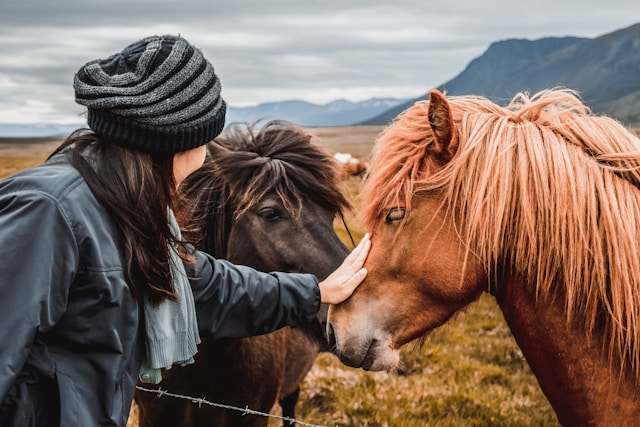
Adolescence can be a challenging period, marked by emotional, psychological, and social struggles. For some teens, traditional therapy methods like individual counseling or outpatient treatment may not fully meet their needs. Alternative therapies offer additional tools and settings that can help these teens find stability, develop coping strategies, and build self-confidence. Approaches such as family and group therapy, equine therapy, and wilderness programs provide unique opportunities for healing and personal growth.
Alternative therapies complement traditional mental health treatments by engaging teens in experiential and holistic approaches to healing. These treatments often focus on hands-on experiences, social interaction, and non-verbal communication, which can be particularly effective for teens who struggle with expressing their emotions in conventional therapy settings. They also help build resilience, self-awareness, and coping skills that are essential for long-term emotional and psychological well-being.
Family dynamics play a crucial role in a teen’s mental health. Family therapy focuses on improving communication, resolving conflicts, and fostering a supportive home environment. Therapists guide families in identifying unhealthy patterns and developing strategies for healthier interactions.
Through family therapy, parents and siblings gain a better understanding of their teen’s struggles, providing a platform for open dialogue and ensuring that the entire family is involved in the healing process. This enhances communication and understanding between family members, addresses underlying family issues that contribute to a teen’s difficulties, and strengthens family bonds, ultimately creating a more supportive home environment.
Group therapy provides teens with a structured environment where they can share their experiences, learn from others, and gain support from peers facing similar challenges. Facilitated by a licensed therapist, group sessions encourage teens to express themselves, develop social skills, and practice healthy communication in a safe space. The benefits of group therapy include reducing feelings of isolation, fostering positive peer influence and social support, and helping teens develop crucial interpersonal skills and emotional regulation.
Animal-assisted therapy involves working with animals, mainly horses, to promote emotional growth and personal development. Unlike traditional talk therapy, this hands-on approach helps teens develop responsibility, patience, and self-awareness. The bond formed between a teen and a horse can be deeply therapeutic, providing a sense of trust, connection, and emotional support.
The benefits of animal-assisted therapy are numerous, as it enhances emotional regulation and self-confidence in individuals. It also teaches responsibility, patience, and non-verbal communication skills, as interacting with animals requires attention and understanding. Additionally, this form of therapy provides a calming and therapeutic connection with animals, helping individuals to relax and heal in a comforting environment.
Wilderness therapy programs take teens out of their usual environment and immerse them in nature-based settings, where they engage in survival skills training, outdoor adventures, and structured therapeutic activities. The goal is to remove distractions and help teens reconnect with themselves, build resilience, and develop problem-solving skills in a supportive environment. The benefits of wilderness therapy include fostering self-reliance and resilience through outdoor challenges, encouraging personal growth in a distraction-free setting, and providing the therapeutic benefits of nature and physical activity.
For teens who struggle with verbal communication, creative therapies like art and music therapy offer an alternative way to express emotions. These therapies encourage self-expression through activities such as painting, drawing, playing instruments, or songwriting, which can be highly therapeutic for processing emotions and trauma. The benefits of creative therapies include allowing emotional expression in a non-verbal way, reducing stress and anxiety through creative outlets, and enhancing self-esteem and personal growth.

Adventure therapy incorporates activities like rock climbing, hiking, kayaking, and team-based challenges to promote emotional and psychological healing. The goal is to build confidence, teamwork, and problem-solving skills through experiential learning.
This encourages teamwork and social skills, helping individuals collaborate effectively with others. It also builds confidence by allowing participants to overcome both physical and mental challenges. Additionally, it provides an active and engaging therapeutic experience, promoting personal growth and well-being.
Every teen is different, and finding the right alternative therapy depends on their individual needs, interests, and challenges. Some teens may benefit from structured group therapy, while others may thrive in a wilderness setting. Working with a mental health professional to determine the best approach ensures that the therapy aligns with the teen’s specific struggles and goals.
Alternative therapies provide invaluable tools for helping struggling teens navigate emotional and psychological challenges by offering unique, holistic approaches to healing. These therapies often emphasize personalized care, focusing on the individual’s needs and strengths. These approaches can help teens develop coping strategies, increase self-awareness, and build a sense of empowerment in managing their own mental health. By exploring these options, families can create a supportive environment that nurtures their teen’s growth and fosters a sense of hope. With the right combination of therapy, support, and personal development, teens can be equipped with the skills and resilience needed to thrive in the face of life's challenges, leading to long-term success and well-being.